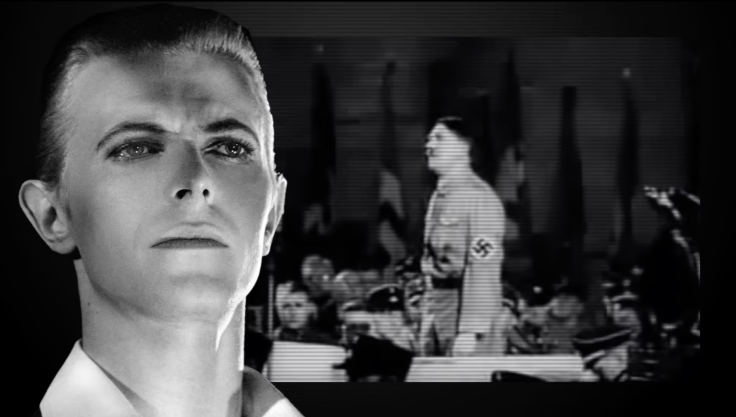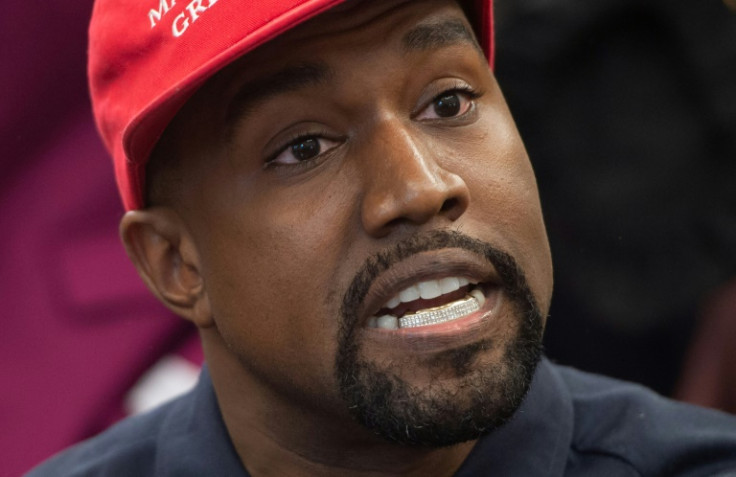The Disturbing Reasons Stars Like David Bowie and Kanye West Romanticize Nazi Propaganda
From the Thin White Duke's provocation to Ye's public praise: How spectacle, ignorance and extremist networks normalise fascist imagery

David Bowie's notorious 1976 remark that 'Adolf Hitler was one of the first rock stars' and Kanye West's later declaration, 'I like Hitler' are not isolated lapses. They expose a recurring, disturbing attraction in popular culture to the spectacle, myth, and theatricality of fascist aesthetics.
Bowie's comment, made during a fraught period of addiction and persona-play, shocked the public and sparked a year-long controversy about whether the Thin White Duke's fascination with authoritarian imagery was aesthetic provocation or something darker. His later retraction and explanation pointed to drug-fuelled instability and theatrical affectation rather than ideological conversion.
By contrast, West's praise of Hitler during a livestreamed 2022 interview took place in an atmosphere of radicalised conspiracy, public antisemitism, and clear political alignment with far-right figures, a context in which praise of Nazism functioned not as theatrical provocation but as active endorsement.
Both episodes illustrate different but overlapping reasons why artists romanticise or borrow from the Nazi propaganda: the lure of spectacle, mythic leadership, shock value, and, in some cases, radical antisemitism or mental illness.
The Spectacle that Seduces: Aesthetics Over Ethics
Fascist regimes invested heavily in choreographed mass spectacle and visual mythology, a form of political theatre that remains visually and emotionally powerful decades later. Walter Benjamin and later scholars argued that fascism 'aestheticises' politics, turning governance into performance and leaders into messianic figures; that very aesthetic continues to fascinate artists who admire the scale, the cinematography, or the mythic simplicity.
For some performers, borrowing Nazi imagery is an attempt to harness that visual potency for art or publicity, a dangerous shortcut that strips context and sanitises atrocity.
Bowie's remarks must be read alongside his Thin White Duke persona, a deliberately cold, Aryanised character he used as theatrical commentary. In his 1976 Playboy interview, Bowie said: 'Adolf Hitler was one of the first rock stars... He staged a whole country'.
The line reads as both a provocation and an observation about mass charisma, yet it carried grave symbolic weight in a Britain already on edge about street politics and racism. Bowie later described the period as one of mental collapse and drug addiction, and he publicly disavowed fascism in subsequent interviews.
Shock, Attention and the Myth of the Leader
For some modern celebrities, the calculation is cruder: shock equals coverage. Provoking outrage on political or cultural taboos can manufacture attention, and in an attention economy that rewards extremes, the line between provocation and endorsement blurs.
West's multiple public entanglements with conspiratorial networks, and his 01 December 2022 Infowars interview in which he repeatedly praised Hitler and claimed affection both for Jewish people and for Nazis, demonstrate how shock can rapidly mutate into hateful advocacy rather than mere theatre.
The interview was livestreamed and widely recorded, meaning the statements were not abstract theoretical utterances but public, persistent affirmations reproduced across social platforms.
There is also the specific modern mechanism of radicalisation: when artists surround themselves with conspiratorial influencers and far-right interlocutors, their flirtation with fascist aesthetics is reinforced by an ecosystem that rewards extremism.
What began as a transgressive gesture can quickly become a political alignment, as the feedback loop of social media and partisan platforms amplifies praise and mutes counter-argument.

Accountability, Context and the Role of Institutions
Not all flirtations with fascism end the same way. Bowie's career survived because he repeatedly clarified, apologised, and contextualised his statements as part of persona-driven theatre, while also later condemning racism.
West's case prompted corporate cuts, social media suspensions and denunciations from civil society because his statements and their context constituted explicit antisemitism and advocacy rather than ironic performance. Institutions, record labels, public broadcasters, and festival organisers have a duty to demand accountability and withdraw platforms when rhetoric crosses into endorsement of hate.
Artists are entitled to explore difficult materials, but there is a clear distinction between art that interrogates evil and rhetoric that romanticises it. When celebrity experimentation with fascist aesthetics sheds historical context, downplays victims, or amplifies real-world hatred, it ceases to be art and becomes a danger.
© Copyright IBTimes 2025. All rights reserved.




















